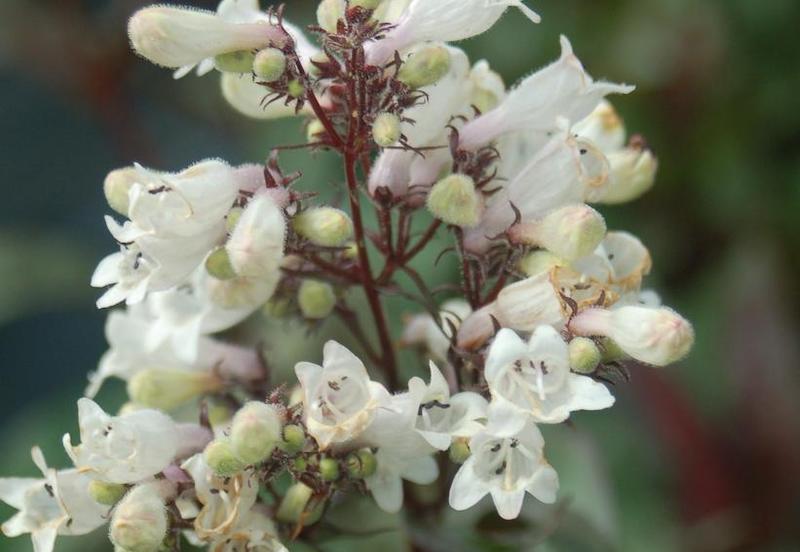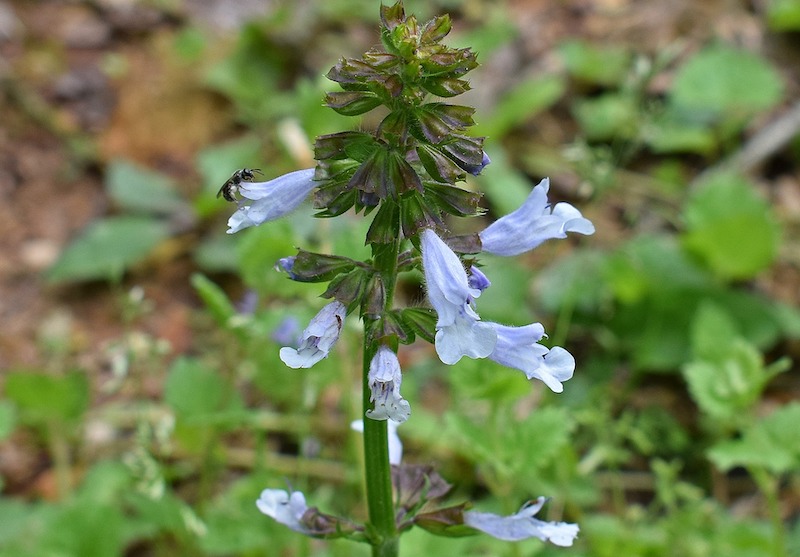Beardtongue is a flowering plant that is a member of the Penstemon genus. Some members of this genus are poisonous, while others are not, so it is best to exercise caution when planting Beardtongue if you have children or pets. Beardtongue contains selenium, which is a natural element. In large quantities, selenium is poisonous. Eating a lot of the plant at once or continually eating small quantities of Beardtongue can cause dangerous levels of selenium to build up in the body.

Is Beardtongue Poisonous to Children?
Beardtongue is poisonous to children. Take care if you have young children prone to putting items in their mouths or eating found things. Touching Beardtongue is not harmful, but eating any part of the plant can potentially cause illness, especially if consumed in large quantities or for a prolonged time.
Is Beardtongue Poisonous to Dogs?
Be careful planting Beardtongue in your yard if you have dogs. Eating Beardtongue can be poisonous to dogs, especially young puppies. Eating any part of the Beardtongue plant can cause respiratory distress, diarrhea, lack of appetite, fever, fluid in the lungs, and damage to the liver, kidneys, and lungs.
Is Beardtongue Poisonous to Cats?
Beardtongue plants are poisonous to cats. Take care when including these plants in your landscape if you have feline friends who share the space. Eating Beardtongue can cause selenium poisoning, which can cause diarrhea, fever, respiratory distress, lack of appetite, fluid in the lungs, and liver, kidney, or lung damage.
Is Beardtongue Poisonous to Other Animals?
Beardtongue is poisonous to horses and other animals. Eating any part of the plant can cause selenium poisoning. When enough selenium builds up in the system, it can cause significant illness and damage.

Symptoms Of Beardtongue Poisoning
Beardtongue contains selenium, which is poisonous in large quantities. Eating a lot of Beardtongue at once, or eating small amounts over some time, can cause selenium poisoning. Always check with your doctor or veterinarian for guidance if you suspect Beardtongue poisoning.
Here are some common symptoms to look out for:
- Nausea
- Vomiting
- Nail discoloration, brittleness, and loss
- Hair loss
- Fatigue
Preventing Beardtongue Poisoning
Fencing and barriers can be used to keep young children and pets away from Beardtongue. Consider planting Beardtongue in a front yard if your kids and animals can only access the backyard. However, the most effective way to prevent Beardtongue poisoning is to select another plant in place of it.
Pet Poison Helpline
If something were to happen to your furry friend, and you suspect that they are suffering from Beardtongue poisoning, there is a poison control hotline to call for 24/7 vet advice. It is called the Pet Poison Hotline, and their phone number is (855) 764-7661.
Sources: "Penstemon, beard tongue." Colorado State University Guide to Poisonous Plants. poisonousplants.cvmbs.colostate.edu.
 |
Author Alison Cotsonas - Published 05-03-2023 |
